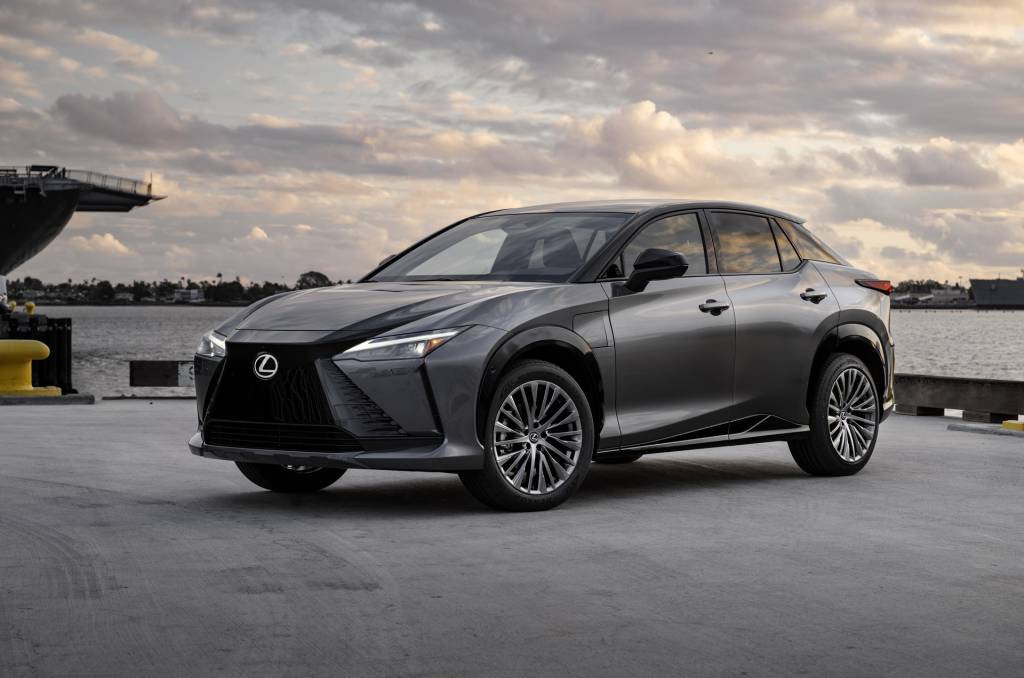- A new Toyota battery plant is reportedly in the works
- The Japanese plant would make batteries for Lexus EVs
- Toyota is building a battery plant in North Carolina as well
Toyota plans to build a Japanese EV battery plant for its Lexus luxury brand, the Nikkei business daily reported Friday.
Circulated by Reuters, the report said the new battery plant would be located in Japan’s southwestern prefecture of Fukuoka, but did not provide any other details. Toyota views Kyushu, the island where Fukuoka is located, as a central hub for its EV supply chain, according to the report.
Lexus LF-Z Electrified concept
This report comes as other automakers pull back EV production targets. EV output is 45% below expectations, French supplier OPmobility SE said this week. General Motors recently announced that it would delay a goal to have production capacity for one million EVs, originally targeted for 2025, while Ford is re-tasking a Canadian assembly plant from EVs to internal-combustion Super Duty pickup trucks.
Toyota in 2023 said it would transform Lexus “into a battery EV brand” by 2035, but there may be some flexibility in the steepness of the ramp to that goal. Other luxury brands, including Audi, Mercedes-Benz, and Porsche, have recently discussed keeping combustion models in production into the next decade on the way to an all-electric future. And Toyota in 2021 indicated 85% of its U.S. vehicles would still have tail pipes in 2030.

2024 Lexus RZ
While it has shown some striking concepts, the only Lexus EV currently sold in the U.S. is the RZ crossover, which tests the electric waters but isn’t a mass-market effort. Lexus added a less-expensive, longer-range version of the RZ for the 2024 model year called the RZ 300e with up to 266 miles of range, compared to a maximum 220 miles for the initial RZ 450e variant.
A Toyota battery plant in North Carolina is slated to start building cells for hybrids and EVs in 2025. The automaker has already announced a $2.5 billion expansion of that plant, which is still under construction, that will be used specifically to add capacity for EV battery production. Toyota also confirmed two three-row electric SUVs for U.S. production in 2025 and 2026.
Read the full article here



